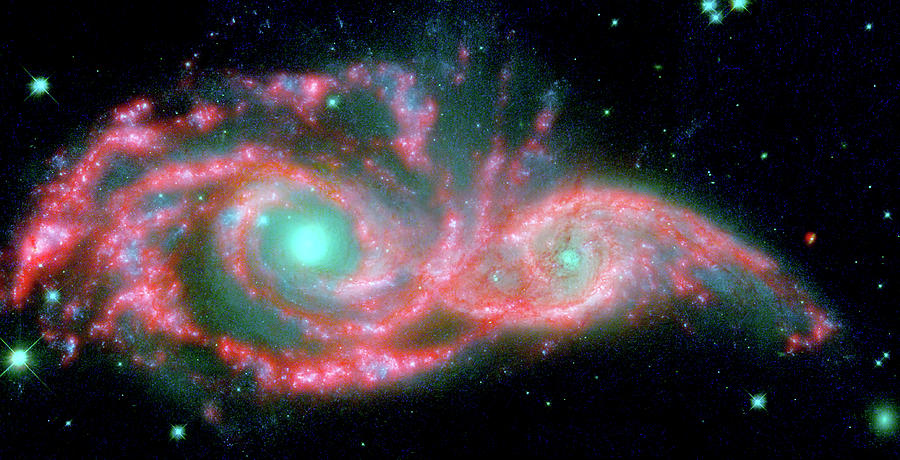Someday I started this blog with the idea of writing down my personal experiences during my gender journey. What I wrote so far was mostly rooted in my feelings. I didn’t express my opinion about the bigger picture yet, but today I want to make an attempt. I want to talk about femininity. What exactly is this femininity? And how does it differ from masculinity?
I have been seeing a therapist for some time. This has always helped me keep my life in balance during this adventure. During one of the sessions, she asked me the question, “what does femininity mean to you?” At the same time I realized how important the “to you” part is. The question “what does femininity mean?” – that is, without “for you” – turns out to be unanswerable, as I will try to demonstrate here. First, there is always a personal component. A person’s understanding of femininity is strongly determined by who this person is. Someone who has progressive views will think differently about it than someone who is conservative. And the idea someone has today is probably not the same as the idea they had as a child. That’s what makes it so difficult to define these concepts, because a definition assumes a broad consensus. There is no exact definition to which everyone agrees.
So, femininity, and masculinity, are personal.
Second, there is also a clear fluidity in these concepts. In our Western world, people think of femininity, and masculinity, differently than in the East. In Africa, the images are different from the images held in Scandinavia. The expectations regarding women and men 50 years ago were very different from the expectations today. What we understand by femininity, and masculinity, varies in place and in time.
Femininity, and masculinity, are personal, and fluid.
Third, to further complicate matters, they are concepts with multiple aspects. We can say something about external physical characteristics, but also about the way one dresses. And about the way women, and men, relate to others, and how they behave. And about the values they pursue for themselves, about personal ambitions. And about romantic and sexual attraction. Both concepts are zones, or areas, in a multidimensional space.
Femininity, and masculinity, are personal, fluid and multidimensional.
However, despite their personal, fluid and multidimensional nature, perhaps one characteristic remains. That is, femininity and masculinity are different. We still see them as two different things. Some take this very far, saying that women are from Venus, and men are from Mars. However, I find this metaphor stupendous. As if one can associate one with Love, and the other with War. As if the two are completely separate, and differ in every aspect. In fact, a metaphor like this is harmful, confirms stereotypes, and creates false expectations.
A better metaphor might be this one. Femininity and masculinity differ from each other the way love and friendship differ from each other. (To clarify, there is no association between femininity and love here, nor with friendship.) They are all complex concepts, with multiple dimensions. Their meaning shifts in time and place. And above all, they are concepts with a strong personal and emotional slant. And that also explains why so many books and songs are written about them. Love and friendship are different, but … they also have a lot in common.
Femininity and masculinity are also different, but… they also have a lot in common.
And now it dawns on me. It will not be possible to define femininity, or masculinity. No one can. One could make two lists of stereotypes, but the very fact that one use stereotypes indicates that they are not perfect definitions.
So femininity, like masculinity, is ungraspable. They are two zones in a multidimensional space, very much overlapping, but not completely coinciding. The boundaries are unclear, they are fuzzy. The boundaries also shift in time, and elsewhere in the world the boundaries are somewhere else. And what’s more: we are never going to agree on exactly where those boundaries lie. For each person, those fuzzy boundaries lie somewhere else. And that’s okay.
Femininity and masculinity are like two moving galaxies coinciding, almost collapsing. And depending where you stand in the universe, you have a different view. And that’s okay.
—
As a final side note. My answer to the therapist’s question was this list:
- Beauty
- Softness, as a strength
- Joyfulness


Leuk geschreven, interessant. Eens ook met je antwoord aan je therapist. Waarschijnlijk heeft elk mens beide in zich, misschien kiest iemand uiteindelijk voor wat oké is, min of meer ok is, en wat echt niet ok is. Voor mij is/was dat zeker het lijf , de geslachtelijke mannelijke kenmerken waarmee ik absoluut niet verder kon, tegen elke prijs.
LikeLiked by 1 person
Louise this post resonates so strongly with me. Not that I have ever realised the way femininity and masculinity do vary over time and across cultures.
But once you express it thus, it becomes obvious. A powerful insight and thank you for posting it.
And your specific chosen attributes of feminity are lovely too.
Geraldine O’Brien
LikeLiked by 2 people